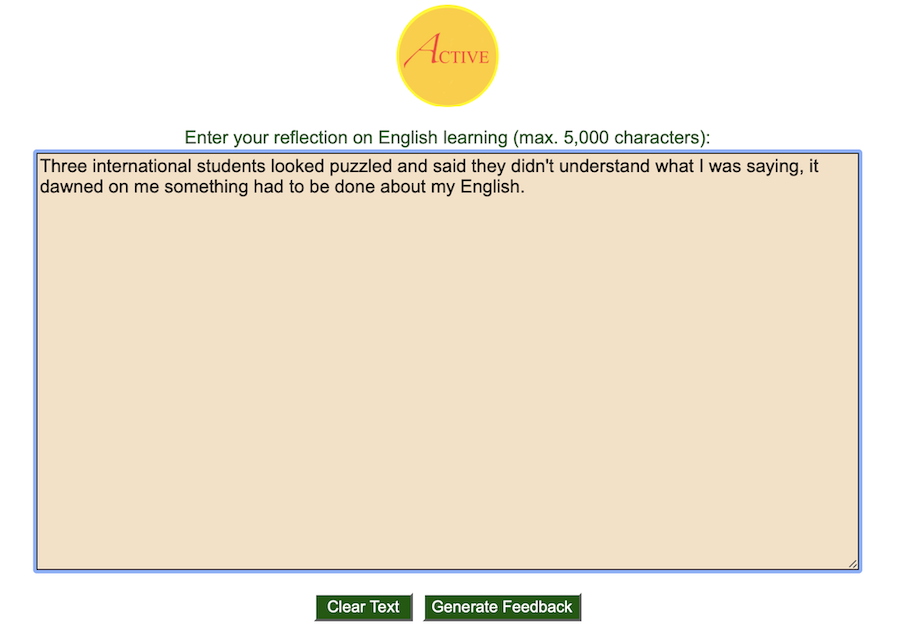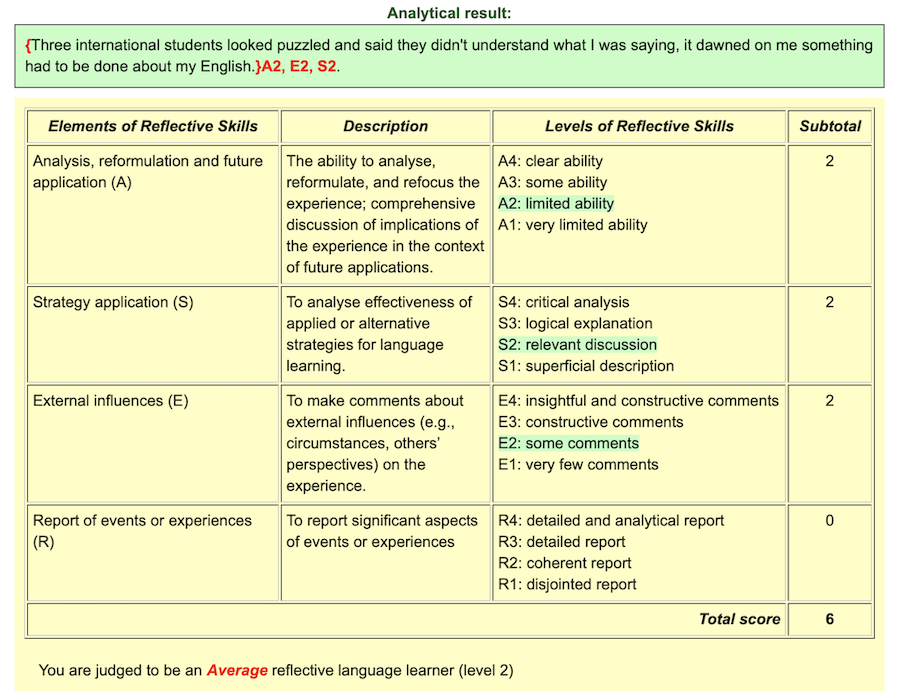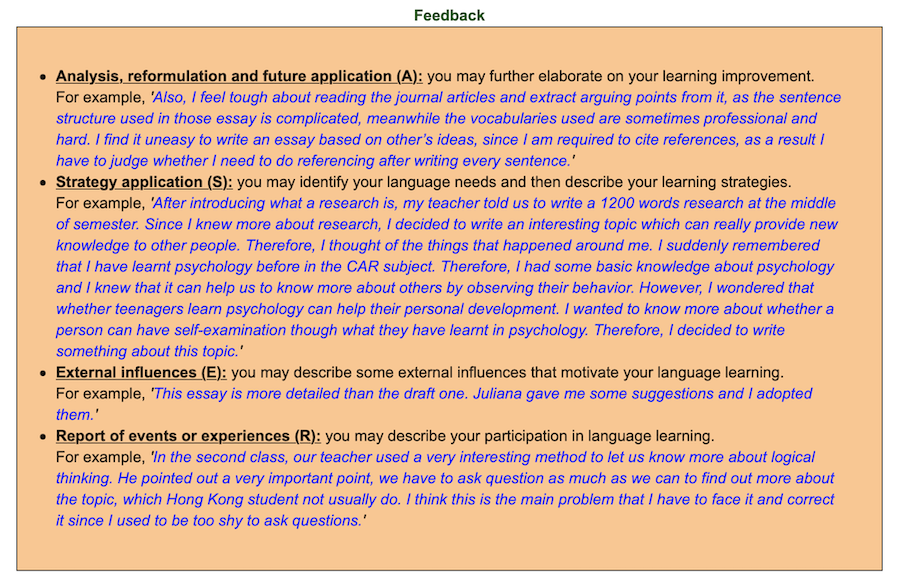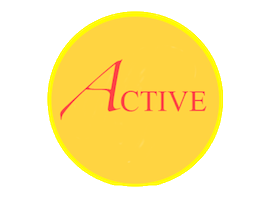Title
Automatic Classification Techniques In Virtual Environments – The
ACTIVE Project: Generating Immediate Feedback to Support Reflective Learning within ePortfolio Contexts
Period
01 January 2014 - 31 December 2015
Abstract
There is a wealth of research evidence that the ability to critically reflect upon one’s own experiences is a desirable learner attribute which often leads to deep learning and acquisition of professional knowledge. To foster students’ reflective ability, electronic portfolio (ePortfolio) has been increasingly used in both learning and assessment across different disciplines because of two main reasons. First, ePortfolio can enable students to collect and select multimedia artifacts showcasing their learning experiences as a basis for reflection. Second, it can engage students in the reflective process of connecting the artifacts to appropriate outcomes, goals or standards. Despite the beneficial role of ePortfolio in reflective learning, its full advantages cannot be realized if students are not provided with timely and adaptive feedback on the quality of their reflection. On the one hand, individually tailored feedback can potentially help students to enhance their reflective skills. On the other hand, it creates issues of workload and consistency in evaluating a sizeable amount of reflective entries generated by students, hindering the effective implementation of ePortfolio in education.
Recent advance in Natural Language Processing (NLP) technology has brought in new computer-based methods in grading students’ written summary and free text answers with results comparable to human ratings. The technology offers a promising approach to address the said problem in ePortfolio. Nevertheless, to the best of our knowledge, there has not been any research into applying the automatic classification techniques in NLP to identify the level of student reflection and generate instant tailored feedback within ePortfolio contexts. Nor has there been any research into the role of automatic evaluation in students’ reflective learning. In this regard, the proposed project seeks to support students to reflect on their English language (L2) experience in an ePortfolio system by making the best use of the affordances of the automatic classification technology. To guide students towards critical reflection, the project will develop an automatic software tool to evaluate levels of student reflection and subsequently generate immediate, adaptive and individualized feedback based on the evaluation results. The project will also investigate the impact of the automatic tool on students’ reflective ability. It is expected that by integrating the automatic classification techniques into ePortfolio environments, the project will create more innovative and interactive learning experiences for students in reflective practice, in addition to developing teachers’ expertise and institutional capacity in applying the NLP technology for teaching and learning.
Objectives
- To develop an effective computer-based model for automatic classification of student reflection in an ePortfolio environment;
- To implement an automatic software tool for identifying level of reflection and generating immediate feedback based on the classification model specified in the first objective;
- To evaluate the agreement of ratings between the automatic tool and human annotators;
- To examine the impact of the automatic tool on the level of student reflection; and
- To collect and analyze students’ and teachers’ views on the value of the automatic tool
in reflective learning.
Screenshots



Publications
Journal Papers
- Cheng, G. (2017). Towards an automatic classification system for supporting the development of critical reflective skills in L2 learning. Australasian Journal of Educational Technology, 33(4), 1-21. Link
- Cheng, G. (2017). The impact of online automated feedback on students’ reflective journal writing in an EFL course. The Internet and Higher Education, 34(4), 18-27. Link
Conference Papers
- Cheng, G., Law, E, & Wong, T.-L. (2016, December). Investigating Effects of Automated Feedback on EFL Students’ Reflective Learning Skills. Proceedings of the 2016 IEEE International Conference on Teaching, Assessment and Learning for Engineering (TALE 2016), Bangkok, Thailand. Link
- Cheng, G., & Chau, J. (2015, July). Using an Automatic Approach to Classify Reflective Language Learning Skills of ESL Students. Proceedings of the 2015 IEEE 15th International Conference on Advanced Learning Technologies (ICALT 2015), Hualien, Taiwan. Link
- Cheng, G., & Chau, J. (2015, May). Exploring Students' Perceptions on the Use of the A-S-E-R Framework in Reflective L2 Learning. Proceedings of the 3rd International Conference on Social Science and Management (ICSSAM), Kyoto, Japan. Link
- Chau, J., & Cheng, G. (2014, May). Towards an Online Automatic System for Classifying Reflective Language Learning Abilities: from Development to Implementation. Proceedings of the International Conference on Social, Education and Management Engineering (SEME 2014), Macau, China. Link
- Cheng, G., & Chau, J. (2013, December). An Approach to Identify Levels of Reflection Using Latent Semantic Analysis. Proceedings of the 3rd International Conference on IT Convergence and Security (ICITCS 2013), Macau, China. Link
Acknowledgement
This project was financially supported by General Research Fund (No. 840913) of the Research Grants Council (RGC) of Hong Kong, China.




